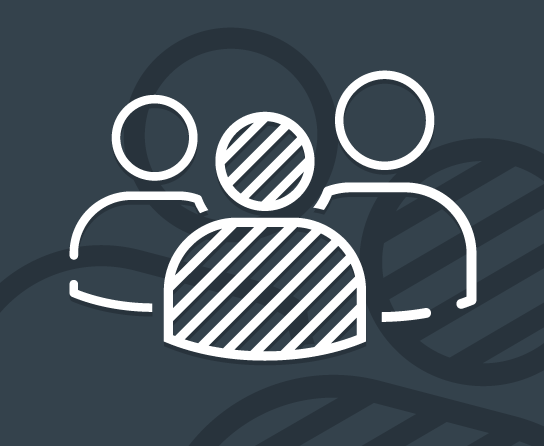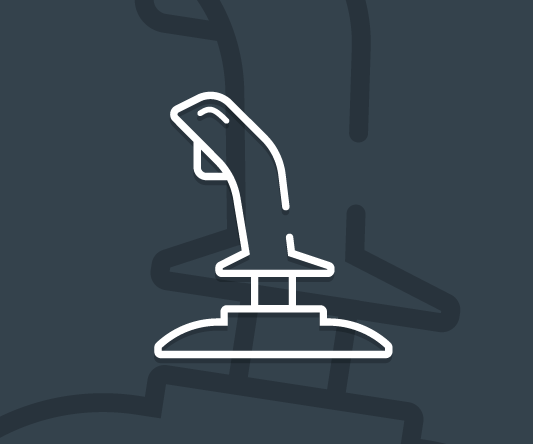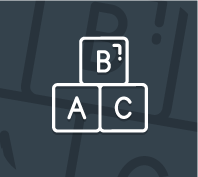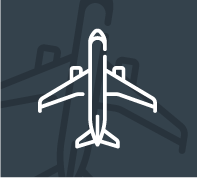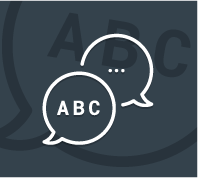If you don't have time to read this article but would like to know whether our software can help - it can. You can buy access to our software and get started immediately, 365 days-a-year.
Buy Preparation Software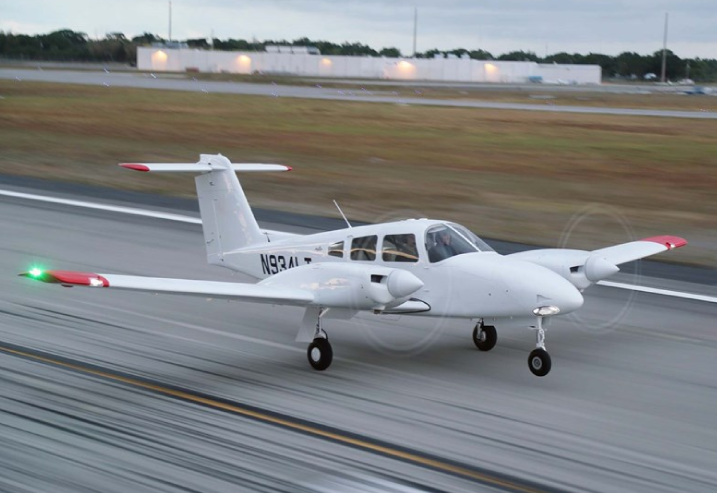
With purpose-built facilities in Cranfield and Crawley in the UK, and in Orlando in the USA, L3Harris Airline Academy provides professional flight training, spearheaded by their popular Integrated ATPL course.
The organisation boasts more than forty years of experience as well as successful placement of graduates with airlines such as British Airways, easyJet, Ryanair and Aer Lingus.
Training is delivered by this organisation using a mixed fleet of Diamond DA-40, Diamond DA-42, Piper PA28, Piper Seminole PA44 and Cessna 172 aircraft.
The L3Harris Airline Academy assessment and selection process includes three stages:
Click any stage to scroll to the relevant part of this Knowledgebase article, or continue reading below.
ℹ L3Harris Airline Academy refer to their computerised pilot assessment or pilot aptitude test as a 'Technical Assessment'.
Computerised pilot assessments (often also referred to as 'Computerised Pilot Aptitude Tests') are those assessments designed to evaluate the competencies required of a professional pilot and typically take the form of a series of separate tests (known as a 'Test Battery') undertaken either on-site at a facility, or remotely using a desktop or laptop computer.
These assessments differ from other types of aptitude tests used in other industries, typically aiming to evaluate competencies (or skills) such as Multi-Tasking, Motor Skills, Reaction Time, Spatial Awareness and Memory Recall.
Evaluation of the above competencies is often achieved using a variety of different methods and mechanisms - for example, memory recall may be assessed with a task to memorise and recall information displayed on screen, whereas multi-tasking may be evaluated by asking the candidate to perform multiple concurrent tasks using a keyboard and mouse, or motor skills may be appraised by asking the candidate to center a ball within a targeted area using a joystick.
In some cases, the candidate may be required to undertake two attempts of each test, or to undergo a Verification Test some time after completing their original pilot assessment.
On completion of assessment, a candidate's score may be compared to that of other candidates who have previously undertaken the assessment (known as Norm-Referencing) or, their scoring may be assessed against a defined criteria or pass mark (known as Criterion-Referencing).
L3Harris Airline Academy incorporate a computerised pilot assessment produced by Aon (Cut-E) in to their selection process.
This pilot assessment is undertaken remotely, completed by the applicant in their web browser in the comfort of their own home.
In particular, this assessment is constructed of a Test Battery which can include modules referred to as Complex Control, Ability to Concentrate, Sense of Direction and Deductive Reasoning amongst others.
Shown below are depictions of those modules incorporated in to Aon (Cut-E) pilot assessments:
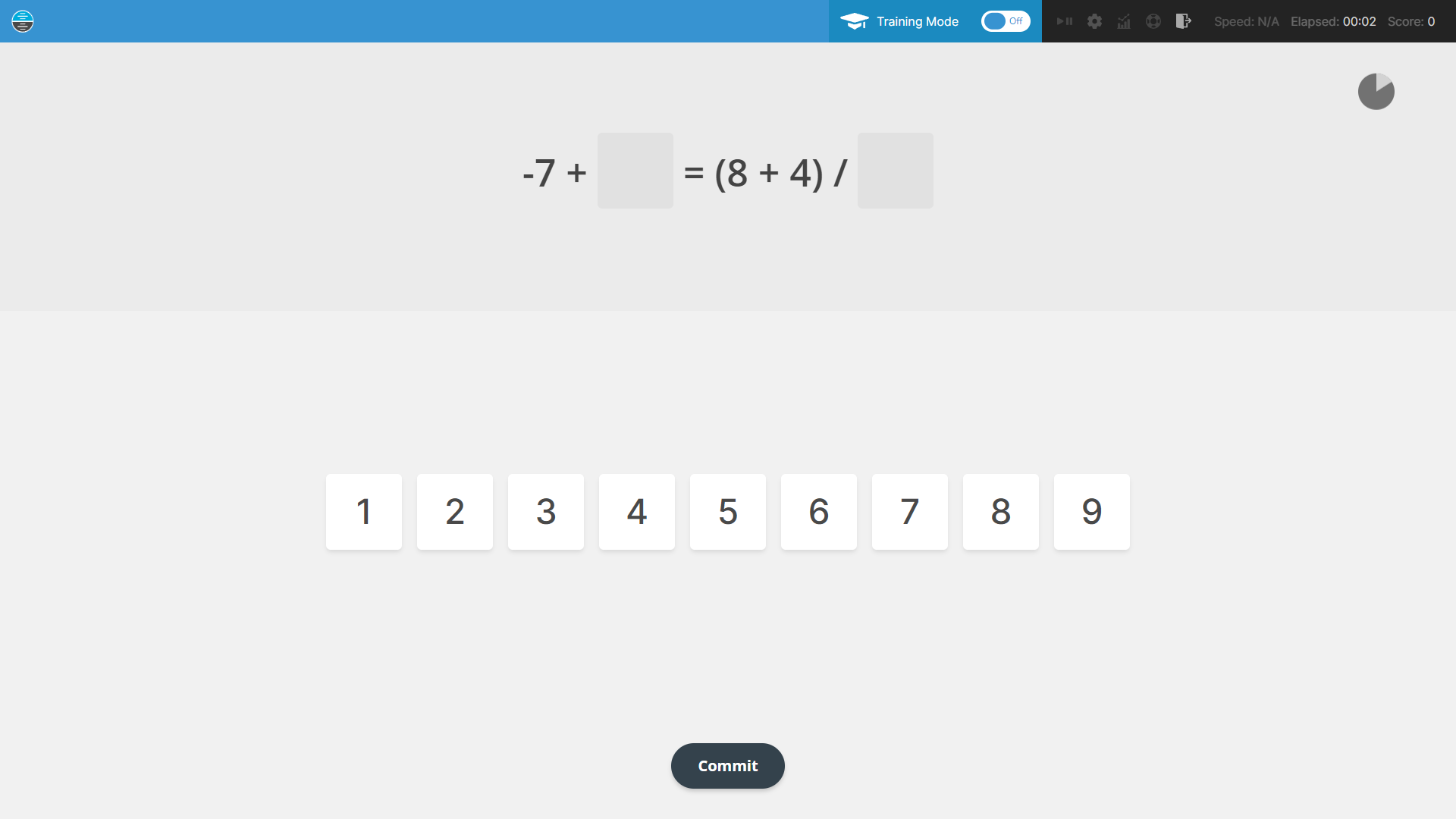
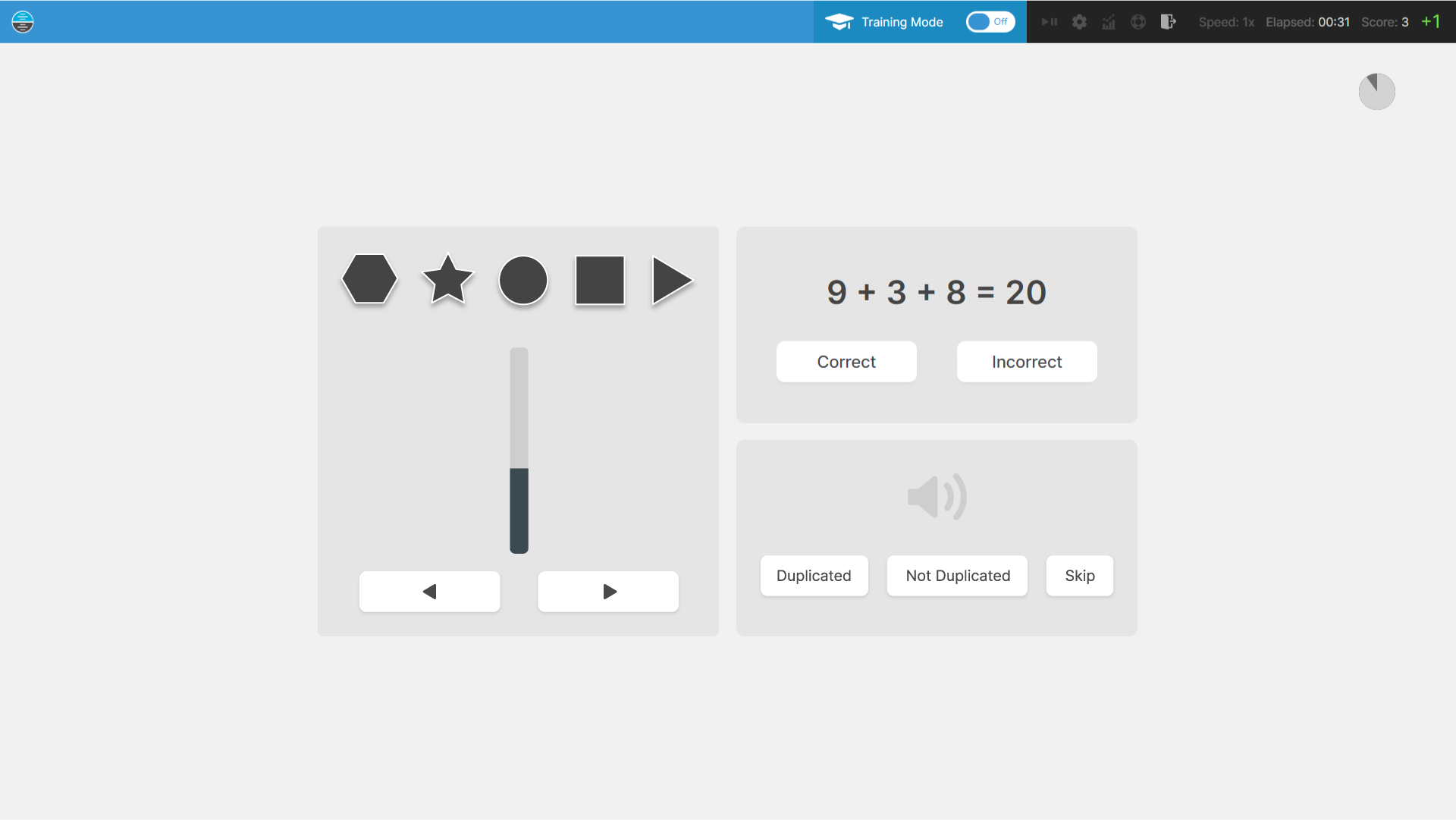


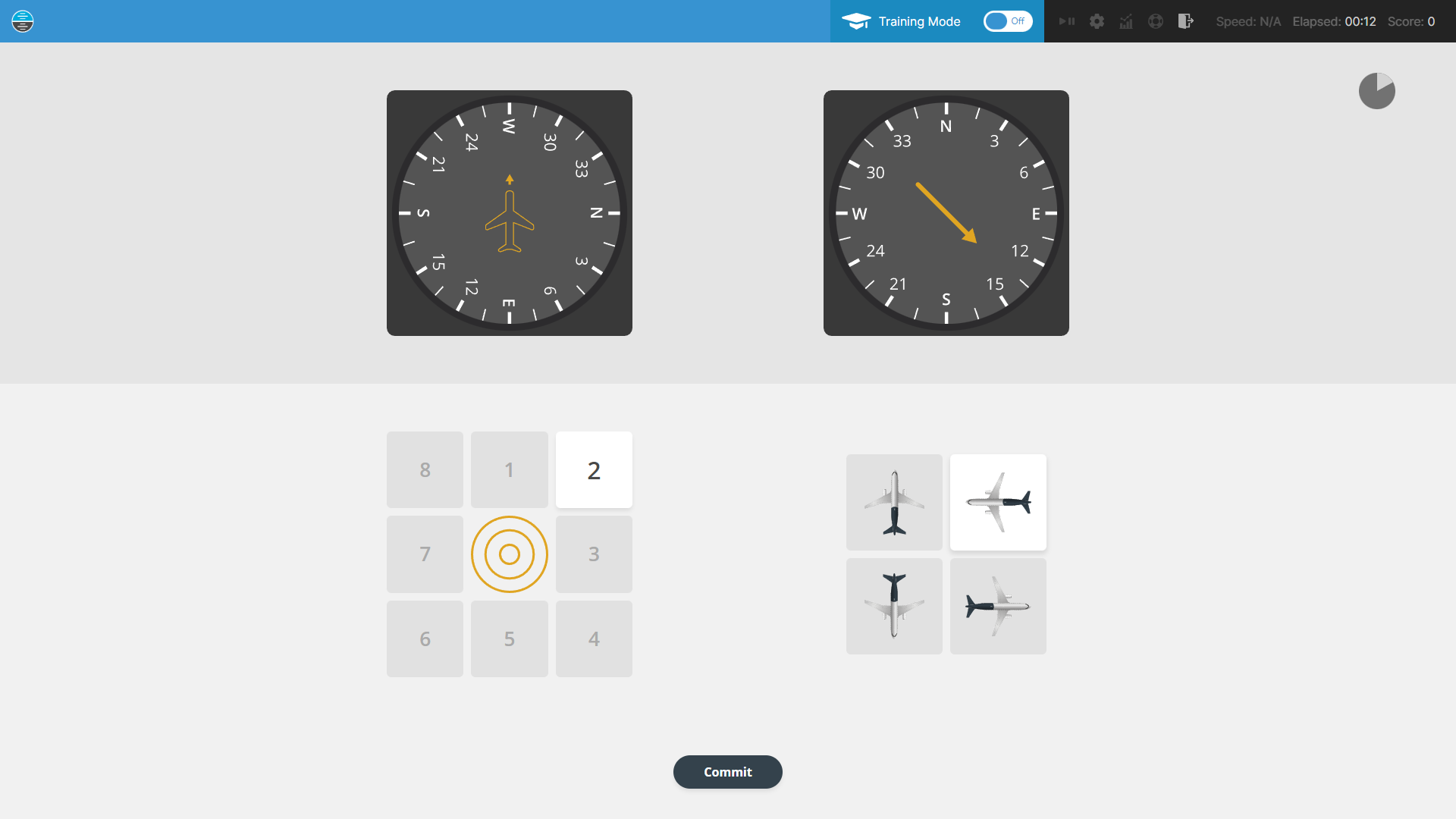

To prepare effectively for this part of the L3Harris Airline Academy selection process, it is recommended to both familiarise yourself with the methods and mechanisms employed, and to improve those competencies which are evaluated, in the Aon (Cut-E) computerised pilot assessment.
Our software provides realistic simulations of this assessment contained within a section dedicated to L3Harris Airline Academy, accompanied by Explainer Videos, Visual Walkthroughs as well as the provision of detailed feedback regarding your Performance, and how it compares with other applicants.
To further your preparation, it is also recommended to create a Preparation Strategy specific to this assessment using the CoPilot Wizard and establish Targets to be achieved prior to undertaking evaluation.
ℹ L3Harris Airline Academy refer to their group exercise stage as a 'Non-Technical Assessment'.
A group exercise used within a selection process at a flight training organisation such as L3Harris Airline Academy typically places between 4 to 6 candidates in to a small group.
The group of candidates are then given a specific task or scenario, sometimes accompanied with a restriction such as a time limit, and must work together to find a solution.
Tasks and scenarios set within group exercises at flight training organisations are often designed to simulate real-world simulations that prospective pilots may encounter, such as:
- Collaborative Decision-Making
- The group may be asked to make decisions or reach a consensus on how to handle an in-flight emergency or resolve a complex operational issue.
- Resource Management
- The group may be given a limited set of resources (e.g., tools, information, or time) and asked to prioritize and allocate them effectively to achieve the desired outcome.
- Communication and Leadership
- The group may be required to delegate responsibilities, share information, and coordinate their efforts to complete the task successfully.
- Problem-Solving and Critical Thinking
- The group may be presented with a complex problem or challenge and asked to analyse the situation, identify potential solutions, and implement the best course of action.
The above tasks may be incorporated in to a variety of differing scenarios, such as:
- Disaster Response
- The group is presented with a disaster scenario, such as a natural disaster or humanitarian crisis.
- They must work together to prioritize rescue efforts, allocate limited resources, and coordinate a response plan.
- Ethical Dilemma Discussion
- The group is presented with a complex ethical scenario, such as a moral conflict or decision-making dilemma.
- They must discuss the issue, consider various perspectives, and reach a consensus on the best course of action.
- Airline Business Challenge
- The group is assigned the task of running a simulated airline, including managing routes, pricing, customer service, and operational efficiency.
- They must collaborate to make strategic decisions, respond to market changes, and ensure the profitability and competitiveness of the airline.
- Paper Airplane Design and Testing
- The group is provided with paper, scissors, and other basic materials and tasked with designing and constructing a paper airplane.
- They must then test their airplane's performance and make adjustments, all without verbal communication.
When preparing to engage with the L3Harris Airline Academy selection process, consider the following tips to ready yourself for the group exercise:
- Participate in group discussions, debates, and collaborative projects to improve your active listening, empathy, and ability to express ideas clearly.
- Take on leadership roles in group projects or extracurricular activities to develop decision-making, delegation, and conflict resolution abilities.
- Participate in student clubs, competitions, or simulations that involve team-based problem-solving and decision-making.
- Practice analysing complex problems, identifying key issues, and brainstorming creative solutions.
- Engage in mock group exercises with friends, family, or mentors to get feedback on your performance.
A competency-based Interview is a type of interview that permits an individual or organisation evaluating the applicant to quickly and easily assess the candidate's abilities, attitudes and personality.
During the assessment of pilot candidates, due to the competitive nature of the profession and subsequent high numbers of applicants, competency-based interviews are heavily employed.
In a competency-based interview, a series of questioning is used that enables the candidate to demonstrate their experiences and actions which indicate abilities, attitudes and personality which may be suitable for the role that they're applying for - e.g. a position within a cadet scheme, or as a First Officer in an airline.
In flight training organisations such as L3Harris Airline Academy, these types of interviews are often employed due to the candidate's lack of role-related experience.
Due to their lack of role-related experience, these interviews provide the candidate with an opportunity to demonstrate how they have approached situations, pursuant to their attitudes and personality, or utilised their abilities to identify and resolve problems in the past.
When demonstrating their abilities, attitudes and personality, the individual or organisation evaluating the applicant may then easily assess their suitability for the role of a professional pilot, or in this case, to embark on a training program with the flight training organisation.
When assessing applicants for their professional flight training courses, a flight training organisation like L3Harris Airline Academy may choose to incorporate questioning on the following competencies in their competency-based interview:
- Aviation Knowledge
- Problem Solving and Decision-Making
- Motivation and Commitment
- Communication and Teamwork
Questions that may be asked during a competency-based interview which can help an applicant to demonstrate their competencies in the above areas can include:
When preparing for a competency-based interview within any industry, the most commonly offered advice is to utilise the STAR Technique, which is a method of constructing and articulating a response that satisfies the questioning posed to the applicant.
The STAR Technique aids in structuring responses to competency-based interview questions, and consists of the following structure:
- Situation
- Task
- Action
- Result
Each of the four parts of this structure enable applicants to provide an answer which satisfies a question posed, helping them to effectively and easily demonstrate their abilities using a real-world example.
Below is an example of how the STAR Technique may be used to answer a question posed in a competency-based interview.

With a section dedicated to L3Harris Pilot Assessment, our one-of-a-kind software represents the ultimate way for you to get prepared.
By leveraging our cutting-edge software, including those unique features and extensive guidance not offered elsewhere, you can immerse yourself in realistic simulations, master those competencies assessed, and familiarise yourself with the methods and mechanisms of assessment.
Our software is backed by our meticulous attention to detail and deep expertise as experienced commercial pilots, empowering pilot applicants to approach their assessments with confidence and helping to propel them to supersonic levels of success.
Start using our incredible preparation software immediately on PC, Mac, iOS and Android by purchasing a subscription:
Buy Preparation SoftwareWith increasing prevalence and awareness of computerised pilot aptitude testing in pilot assessments, it's never been more important to ensure that you can fly past the competition. This is made easy with features unique to our software:
Discover the key advantages of using our cutting-edge software:
How can I prepare for my L3Harris Airline Academy pilot assessment?
The best way to prepare for your L3Harris Airline Academy pilot assessment is with our latest industry-leading software, developed over 5 years by experienced airline pilots. Including over one-hundred realistic exam simulations, personalised Preparation Strategies which guide you through your preparation, immersive Explainer Videos, customisable Training Modes that manipulate your simulation environments, comprehensive Instruction and Guidance, and extensive performance feedback which incorporates unique features such as Predictive Scoring, a Strength & Weakness Map and Colour Coding, our unique software will help you to accelerate improvement of your problem areas and fly past the competition in your L3Harris Airline Academy assessment. The software runs in a web browser, is compatible with laptop, desktop, tablet and smartphone, and is complimented with extensive support, provided from 9AM to 9PM GMT. To purchase a subscription to our software and start preparing for your pilot assessment at L3Harris Airline Academy, as well as many other flying schools, click here!
What is the pass mark for the L3Harris Airline Academy pilot assessment?
Many pilot assessments, and computerised pilot aptitude tests, do not have a fixed threshold (or pass mark), but rather evaluate the pilot candidate's overall performance and suitability for the role. Rather than worrying about a specific pass mark, the better approach is to focus on comprehensive preparation that maximizes your chances of success. Our industry-leading pilot preparation software is designed to help you to prepare for your L3Harris Airline Academy assessment, regardless of the pass criteria, by helping you to develop the essential sklls, familiarity with assessment and confidence needed to perform at your best. To discuss your preparation with us, please contact us.
How often is your L3Harris Airline Academy assessment preparation software updated?
Our pilot assessment preparation software is continuously updated, with daily improvements based on feedback from hundreds of monthly users. Developed by experienced airline pilots, the simulations provided within our unique software faithfully reflect all parts of the assessment that you'll undertake with L3Harris Airline Academy, ensuring that you can trust that our software provides the most current and comprehensive preparation for your upcoming pilot assessment. To see the recent updates to our preparation software, please visit our Updates page.
What support is available with your L3Harris Airline Academy assessment preparation software?
With our own industry experiences, we understand the pressures and stresses that come with preparing for a pilot assessment. When you use our software to prepare for your L3Harris Airline Academy pilot assessment, you'll have access to exceptional support and guidance from our team of experienced airline pilots, provided between 9AM and 9PM GMT. This support sets us apart, helping you to develop the skills, knowledge, and confidence needed to approach your assessment feeling completely ready to demonstrate your true potential and fly past the competition.
How quickly can I prepare for my L3Harris Airline Academy pilot assessment with this software?
If you anticipate being invited to a pilot assessment with L3Harris Airline Academy, you may start using our software within as little as a few minutes. We offer access to our preparation software for 7 days, 1 month or 3 months, and provide the opportunity to purchase additional time. This ensures you can work through the comprehensive simulations, and benefit from our guidance at your own pace, with support available whenever you need it. To get started, choose a subscription duration to our preparation software, create an account and complete your purchase - then, login and get preparing! This process typically takes between 2-3 minutes and payment made by credit or debit card is securely processed with Stripe or PayPal.
Feature-packed and one-of-a kind preparation software for your assessment.
Regularly updated, realistic and infinite simulations of aptitude tests.
Instant activation, fast support and uniquely in-depth guidance.
